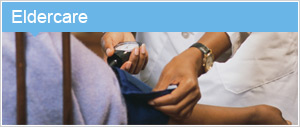EBOLA VIRUS OUTBREAK ALERT!
What is the Ebola virus disease?
Ebola virus disease (EVD) was previously known as Ebola haemorrhagic fever. It is a severe, often fatal disease in humans and non-human primates (monkeys, gorillas and chimpanzees). EVD is caused by a virus, and first appeared in 1976 when two outbreaks (one in an area near the Ebola River in Democratic Republic of Congo, and the other in South Sudan) occurred. Since then, sporadic outbreaks have occurred, most commonly in the Democratic Republic of Congo, Uganda, South Sudan, Congo and Gabon.
How do people become infected with Ebola virus?
Ebola virus is thought to be transmitted to humans through direct contact with the blood, secretions, organs or other bodily fluids of infected animals (which include chimpanzees, gorillas, bats, monkeys, forest antelope and porcupines). This occurs when hunters/other persons come into contact with infected dead animals found lying in the rainforest, or handling raw meat of infected animals.
Once one person is infected, the Ebola virus can spread to other people in their community. Infection occurs from direct contact (through broken skin or mucous membranes, including the nose, eyes and mouth) with blood, or other bodily fluids and secretions (including stool, urine, saliva, semen) of infected people. Less commonly, infection can also occur from direct contact (through broken skin, or mucous membranes -including the nose, eyes and mouth) with environments that are contaminated with an Ebola patient's infectious blood or body fluids, such as soiled clothing, bed linen, or used needles. Burial ceremonies in which mourners have direct contact with the body of the deceased person have also been responsible for spreading infection in some outbreaks. Ebola virus is not spread in the air, so simply being in the same room as an infected person without having the kinds of contact detailed above is not a risk for infection.
Who is at risk of becoming infected with Ebola virus?
During EVD outbreaks, the following persons are most at risk for infection:
- Healthcare workers
- Family members or friends in close contact with infected people, because they come in close contact with infectious secretions/bodily fluids when caring for ill persons
- Mourners who have direct contact with the bodies of the deceased as part of burial ceremonies
- Hunters/other persons in the rainforest who come into contact with infected animals in the forest
What are the signs and symptoms of EVD?
After infection with the Ebola virus, there is an incubation period of two to 21 days (on average, eight to 10 days) after which the person will start to experience symptoms. During the incubation period, the person is well and shows no signs of being infected. After the incubation period, the initial symptoms include fever, weakness and lethargy, muscle pain, headache and sometimes sore throat. This is followed by vomiting, diarrhoea, abdominal pain, and sometimes a rash. Some patients may experience bleeding inside and outside of the body; this is the most serious complication.
How is EVD diagnosed?
EVD can only be confirmed through laboratory testing, usually a blood test. A specialised laboratory at the National Institute for Communicable Diseases (NICD) in Johannesburg is able to test for Ebola virus disease. EVD can only be diagnosed once a person develops signs and symptoms of the disease; there is no test available to detect infection whilst a person is still in the incubation period of disease.
What is the treatment of EVD?
There is no medication available to treat the Ebola virus itself. Standard treatment for EVD is limited to supportive therapy, and severely ill patients require intensive supportive care. This consists of balancing the patient's fluids and electrolytes, maintaining their oxygen status and blood pressure, and treating them early for any complicating infections. Some patients will recover with the appropriate medical care. In previous EVD outbreaks, 50 - 90% of Ebola patients have died. In the current EVD outbreak in West Africa, about 60% of Ebola patients have died.
To control further spread of Ebola virus, patients that are suspected to have EVD should be isolated from other patients and treated by healthcare workers using very strict precautions to prevent being infected.
Can EVD be prevented?
There is no licensed vaccine for EVD. Several vaccines are being tested, but none are available for clinical use as yet. Preventing initial cases is challenging, since it is still not known how exactly Ebola virus is maintained in nature and what preventive interventions would be successful.
Once an initial case of EVD occurs in a community, preventing spread to other people is critical. This includes educating the general public about the condition and how it can be prevented from spreading further.
How can healthcare workers protect themselves from infection with Ebola virus?
Healthcare workers are at high risk of exposure to the virus when caring for Ebola patients, and need to apply additional infection control precautions over and above the standard healthcare precautions. This includes wearing personal protective equipment (including gloves, masks, gowns and goggles), ensuring complete equipment sterilisation, and the routine use of disinfectant. Infected patients must be isolated from other patients and cared for by healthcare professionals who are trained in the appropriate infection control measures.
What precautions should be taken if travelling to West African countries currently experiencing the EVD outbreak?
Travellers must have a valid yellow fever vaccination certificate when travelling to Guinea, Liberia or Sierra Leone. Since these countries are risk areas for malaria, travellers should consult a healthcare professional regarding the appropriate malaria prophylaxis that needs to be taken. Malaria is the most likely cause of illness with fever in a person who has travelled to West Africa, so travellers must pay particular attention to malaria prevention. The symptoms of early EVD are the same as many other infections that can be acquired in West Africa, including malaria, dengue fever, Lassa fever, and typhoid fever. Travellers should take routine precautions to prevent such infections, including: malaria prophylaxis, preventing mosquito bites, regular hand washing with clean water and soap, and adhering to safe water and food practices.
FOR ALL SUSPECTED CASES OF EBOLA VIRUS:
Requests for testing (with a detailed clinical, travel and exposure history) should be directed to the National Institute for Communicable Diseases (NICD) hotline at 082 883 9920 (a 24-hour service for healthcare professionals only).
Click here to download the PDF version.
Reference: National Institute for Communicable Diseases. Website: www. nicd.co.za
Contact Details
Tel: 021 480 4610
Tel: 0800 001 607
Fax: 021 480 4969
E-mail: [email protected]
PO Box 5324
Cape Town
8000


